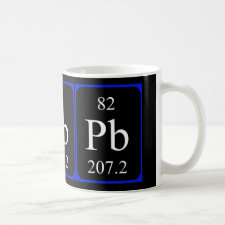
Authors: Gu J, Sun R, Ge T, Zhu Z
Article Title: Adsorption and Recognition performance of lead ion-imprinted micro-beads.
Publication date: 2013
Journal: Journal of Tongji University
Volume: 41
Issue: (10)
Page numbers: 1507-1512.
DOI: 10.3969/j.issn.0253-374x.2013.10.010
Abstract: As to the problem of the heavy metal pollution in the water environment and the wastewater treatment, a lead ion-imprinted micro-beads, with two functional monomers 1, 12-dodecanediol-o, o'- diphenyl- phosphonic acid(DDDPA) and 4- vinylpyridine, were synthesized. Its adsorption and recognition performance were investigated. The lead ion-imprinted micro-beads were efficient for lead ions removal from the aqueous solutions in a broad pH range (pH > 5). In the presence ofcompetitive ions Zn2+, Co2+, Ni2+, it shows a high selectivity for lead ions. The selectivity coefficient of Pb2+/Zn2+, Pb2+/Co2+ and Pb2+/Ni2+ are 86.6, 53.0 and 46.5, respectively. Meanwhile it shows a certain adsorption capacity for Cr3+ and Cu2+, the selectivity coefficient of Pb2+/Cr3+ and Pb2+/Cu2+ are 20.8 and 9.5, respectively. The desorption experiments indicate that the lower concentration of nitric acid has almost 100% removal efficiency for the low quantity of lead ions. After the recycle of adsorption-desorption experiment, the lead ion-imprinted polymer still shows a high adsorption capacity of 90.9 mg g-1
Template and target information: lead ion, Pb(II)
Author keywords: adsorption, Desorption, lead ion-imprinted micro-beads, Pb2+, selectivity



Join the Society for Molecular Imprinting

New items RSS feed
Sign-up for e-mail updates:
Choose between receiving an occasional newsletter or more frequent e-mail alerts.
Click here to go to the sign-up page.
Is your name elemental or peptidic? Enter your name and find out by clicking either of the buttons below!
Other products you may like:
 MIPdatabase
MIPdatabase









